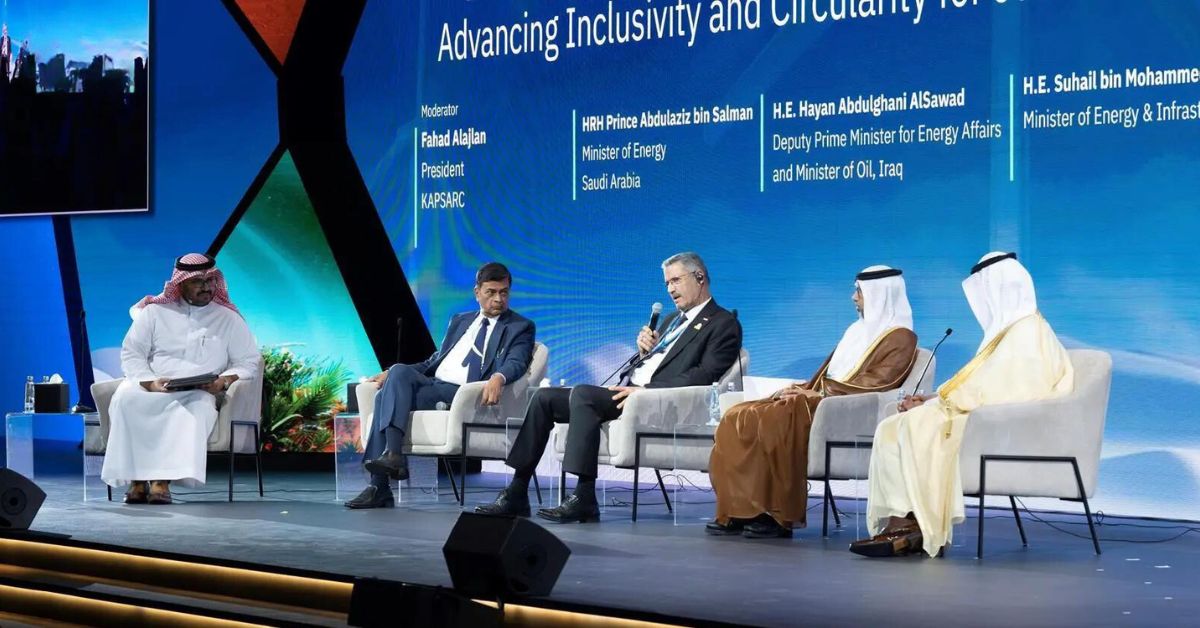Riyadh – Saudi Arabia possesses the potential to capture and store carbon. It’s crucial for the Kingdom, the GCC countries, and Iraq to secure ample investments to facilitate the deployment of innovative technologies, said Saudi Energy Minister Prince Abdulaziz bin Salman bin Abdulaziz Al Saud.
“Achieving success in this area will benefit everyone and align with the goals of the Paris Climate Agreement,” he added while attending the ministerial panel titled “Advancing Inclusivity and Circularity for Just and Equitable Energy Transitions” during the inaugural day of the Middle East and North Africa Climate Week 2023.
The panel also featured UAE Minister of Energy and Infrastructure Suhail bin Mohammed Al Mazrouei, Iraq’s Deputy Prime Minister for Energy Affairs and Minister of Oil Hayan Abdulghani AlSawad, and Pakistan’s Minister of Climate Change Ahmad Irfan Islam.
Prince Abdulaziz further noted, “The Kingdom can serve as a source of clean hydrogen and also as a producer of clean electricity.” He emphasized Saudi Arabia’s holistic strategy that taps into every opportunity to produce energy from renewable sources, generate hydrogen, establish distribution networks, and facilitate electricity transmission.
The panelists unanimously agreed on the importance of collaborative financing. They accentuated the significance of leveraging technology, adopting green hydrogen, and utilizing essential tools to achieve global objectives. The need for developed nations to initiate projects aimed at carbon reduction was also highlighted.
They emphasized the importance of international cooperation in projects centered on clean energy and innovative technologies that aim to diminish thermal emissions and the overall carbon footprint. The panelists expressed optimism that climate change summits would catalyze projects focused on carbon reduction.
Concluding their discussion, the participants stressed the necessity for a revamped global perspective. They highlighted the pivotal role of technology in reshaping energy consumption patterns without compromising environmental integrity.








